It was 11.55am on a blustery October day in 2015.
In the crowded conference room of the Knightsbrook Hotel in Meath, I look at my watch and think, “Time to get Evelyn on stage”.
Surveying the room, I spot Evelyn O’Rourke, notes in hand but as I walk towards her, I see tears streaming down her face.
“Evelyn, don’t worry, you’ll do great,” I say, thinking the nerves have kicked in at the thought of standing up in front of 600 women. But instead she turns to me and says: “Ciara, how do I go on stage after that amazing woman?”
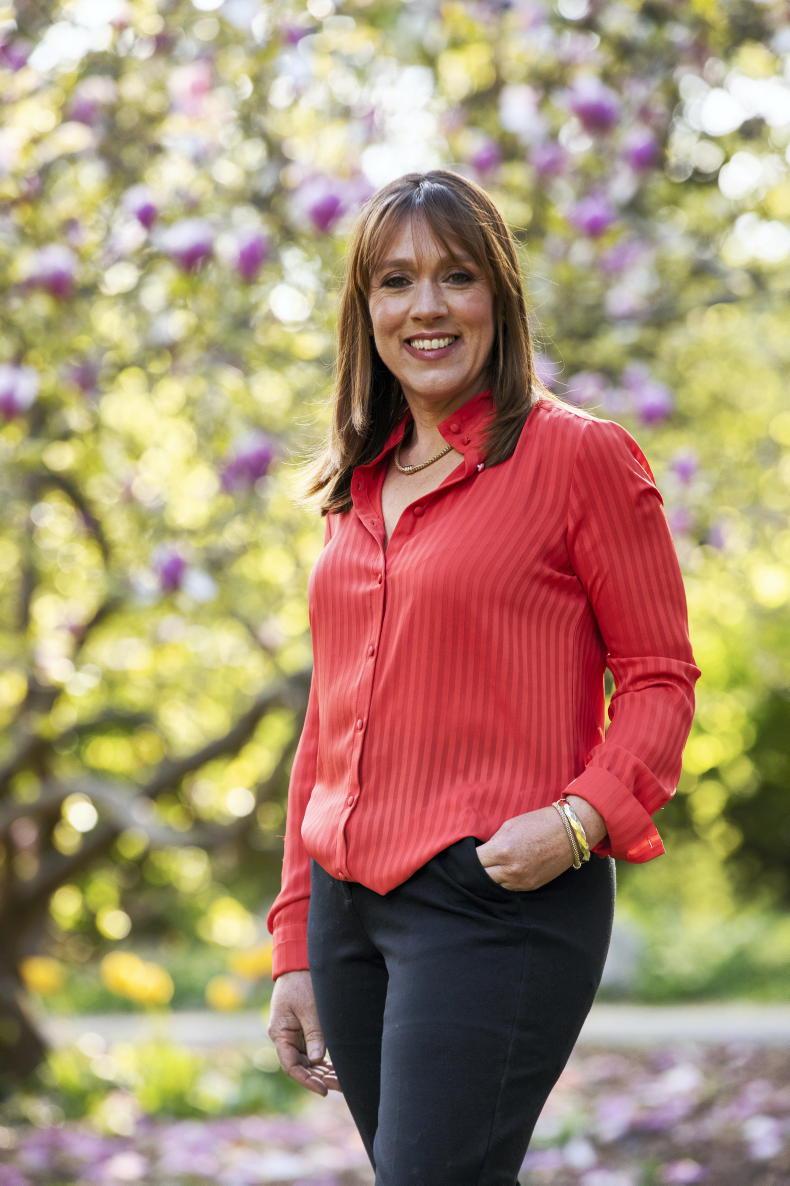
Evelyn O'Rourke spoke at the Women & Ag Conference in 2015. \ Bryan Brophy
The amazing woman she is referring to is Diane Banville who was telling the heart-breaking story of losing her husband Kevin in a farm accident. At the time, her sons Ryan and Cillian were only two and five weeks old respectively. Evelyn’s reaction that day sums up how she is as a person; she is kind, caring and empathetic.
As a journalist in RTÉ, now on the Claire Byrne Show, she has been telling people’s stories with dignity and grace for many years. But Evelyn has her own story and in the 12 years of Women & Ag, her talk that day was, like Diane’s, one of the most memorable.
Cancer while pregnant
In 2010, four days after Evelyn found out she was pregnant with her second son Ross, she was diagnosed with breast cancer.
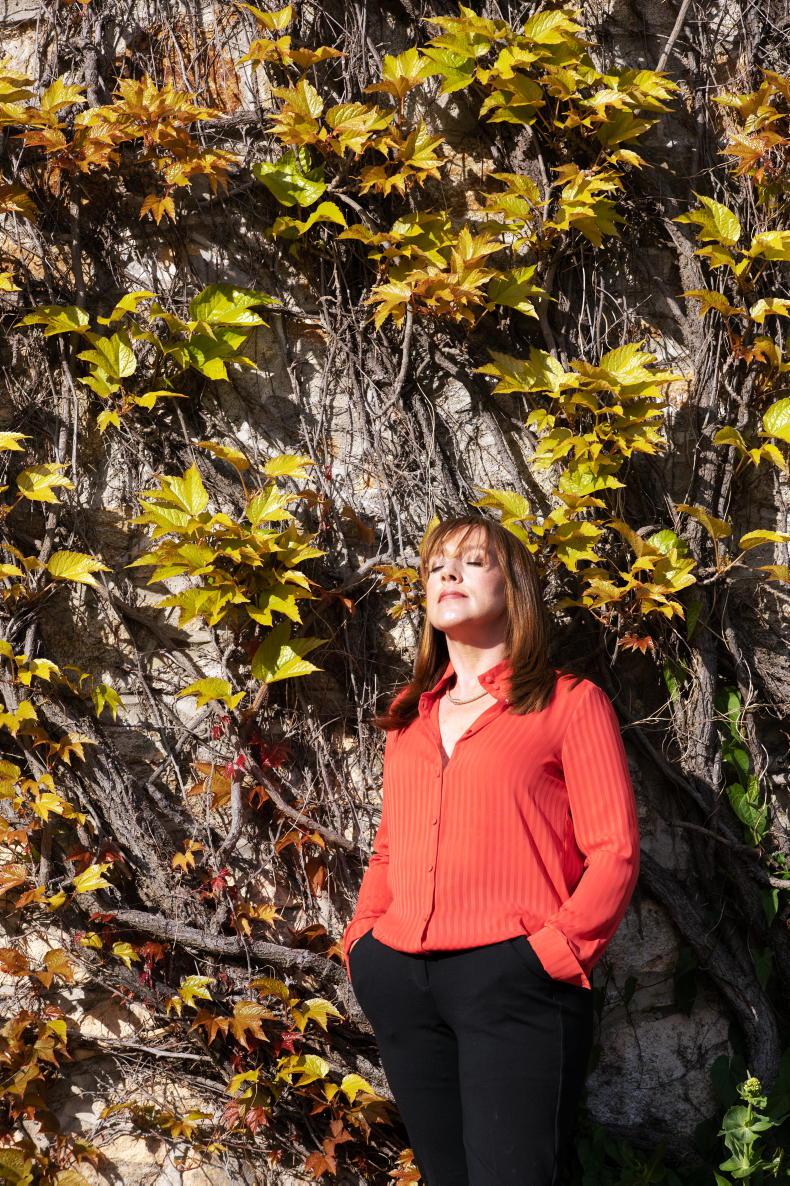
Evelyn was diagnosed with cancer four days after finding out she was pregnant. \ Bryan Brophy
“Four days,” she exhales as if she sometimes cannot believe it herself. “It still feels unreal. My son Oisín was four months old. Nobody wants to be on that chemo ward but you definitely don’t want to be the bald woman with a big pregnant bump on the chemo ward.”
Because that was the path that followed. Incredibly, Evelyn was told that after the 12-week mark, it was safe to do chemotherapy as it does not pass through the placenta and harm the baby. “It was surreal. I was told not to eat prawns but I could do chemotherapy.”
As well as chemo, Evelyn had a lumpectomy to remove the tumour, a second surgery to remove the lymph nodes and another surgery for an infection, all to treat her hormone sensitive HER2 negative breast cancer. Miraculously, in the face of it all, Ross was born a happy, healthy little boy and is now 10 years old.
Women & Agriculture Conference
When Ross was just a baby, Evelyn started writing about her experience as a form of therapy and in 2015, it was developed into a book, Dear Ross. She spoke that year at our Women & Ag Conference.
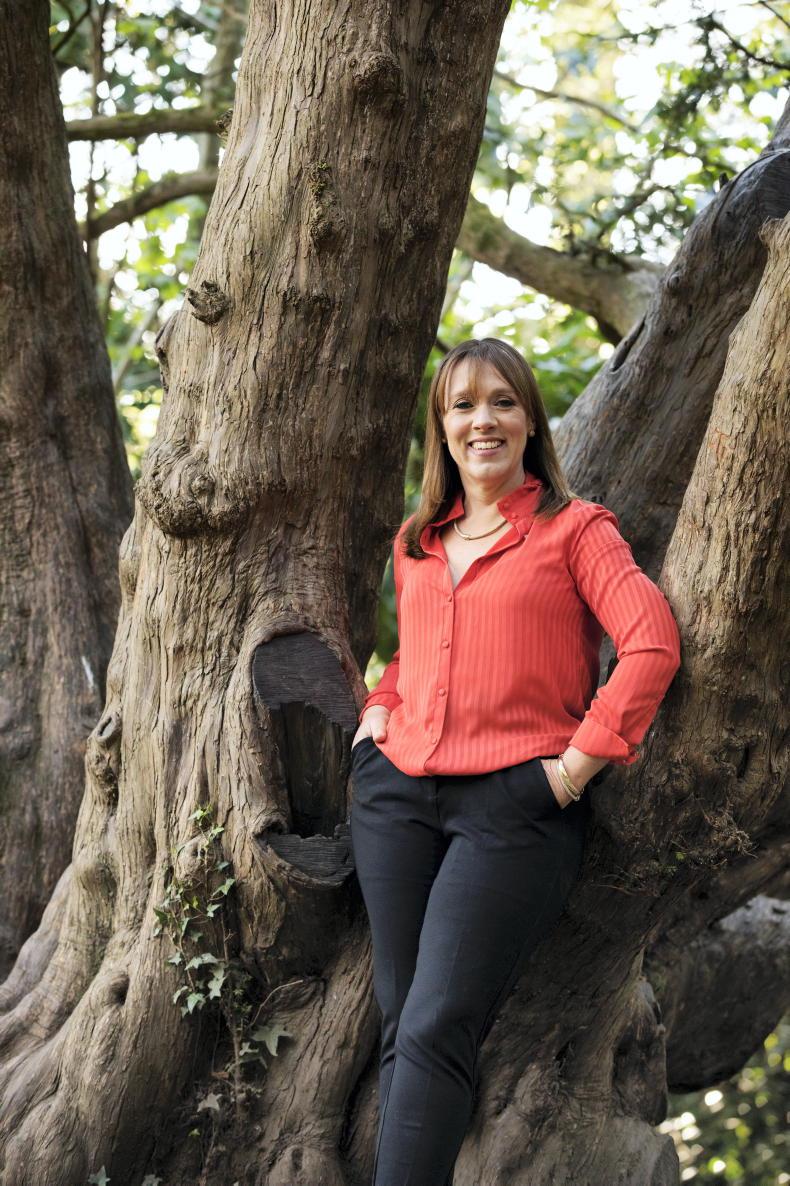
“I remember that day so clearly,” says Evelyn. “The book had come out and it was one of the first big events I had ever done. Over the years, as a journalist, I had hosted lots of events but this was different, this was me telling my story.
“I remember thinking, ‘Right Evelyn you had a mission and now you are going to be tested’. When I was writing that book, my plan was to talk to women about my cancer and how it presented because it wasn’t a lump, it was a spot on my nipple. In a good way, we are all conscious of lumps but the dimpled skin can be a sign.
“So I wanted to speak out, to say there should be nothing different about your breasts from the usual way they look and if there is please get it checked. But that day, when the time came to speak out, I was nervous.
“I was trembling walking on stage but there was just this amazing atmosphere in the room and I got this sense that the audience was rooting for me, they wanted me to do well. I made a joke and everyone laughed and I instantly relaxed. I’m among friends, I thought.”
Aisle and Ise
The Women & Ag Conference is just one of the ways Evelyn has reached out to women over the years. Sometimes it has been a small but significant call to a woman who has just been diagnosed while earlier this year, it was making a documentary for TG4 called Aisle and Ise, documenting her 10 years being cancer free.
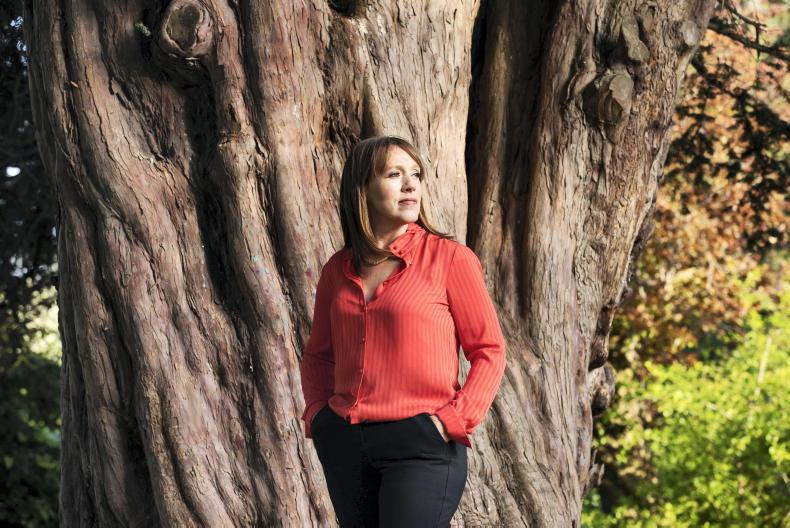
“I have been lucky enough to have had a very positive cancer outcome,” says Evelyn, “and I am very thankful to the health service. They delivered my baby Ross safely against all the odds. He is now 10 and a total dude, he thinks he is fabulous and he is fabulous. It was a thank you from me – I not only recovered, I had a baby.”
Of course, there has been a lot of scandal when it comes to women’s health and the documentary is very honest about that too.
“Interviewing Stephen Teap – whose wife Irene died of cervical cancer after her smear results were reported incorrectly – was very hard, especially seeing Irene’s two sons who are a little younger than my own. That was an important message to get across as well, how the system has failed women and the improvements that are needed.
“I wanted the documentary to be honest but also positive. The truth is that today a cancer diagnosis isn’t always dark and black. Yes, the experience is lousy and dreadful but it can move on to a happier place if the diagnosis is manageable. I wanted to give comfort and hope to women that have gotten a diagnosis or are going through the process.”
Clinical trials
Evelyn has also been a huge advocate of clinical trials and one of the most compelling and uplifting statistics that is revealed in the documentary is that in the past 10 years there has been a 70% reduction in the administration of chemotherapy for women who do not have lymph nodes under their arm with Evelyn’s specific cancer, the hormone sensitive HER2 negative breast cancer.
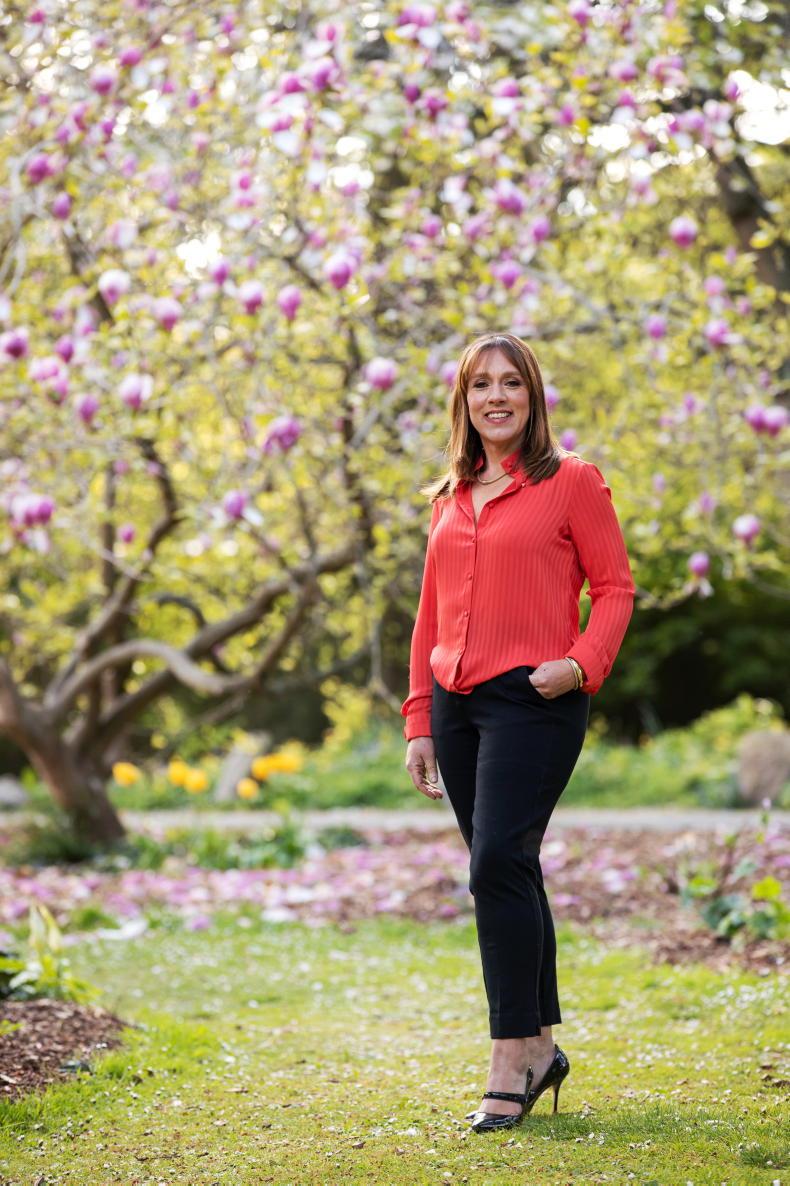
\ Bryan Brophy
“Isn’t that just amazing?” says Evelyn. “Seventy per cent reduction. My oncologist Dr Janice Walsh explained that part of the tumour is sent to America for testing to determine if chemotherapy is needed. Yes, women still have to undergo surgery and radiotherapy but there is something about chemo that is so public, so difficult. To remove that from the cancer experience changes the cancer experience.
“All this comes down to the power of clinical trials. It is the clinical trials that women took part in 10 years before my diagnosis that affected my positive outcome and it was the trials I took part in that will affect the positive outcome for women today.”
Evelyn says, she didn’t even do anything except agree to give some data. “The word trial can be daunting and often our minds jump to the intense end of a clinical trial but there is a huge scale.
“A trial can be as simple as filling out some forms, allowing your data to be used in research, permitting the lab to re-look at your biopsy. Often you don’t need to do anything except agree to be included in a trial. And when you think about that amazing statistic – that 70% reduction in chemotherapy for my specific cancer – you really see the amazing power of trials.
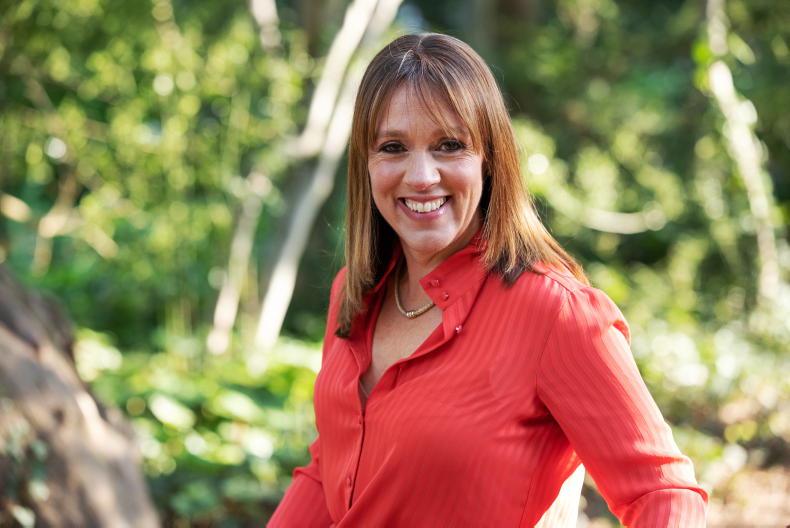
Evelyn wrote a book, Dear Ross, as a form of therapy. \ Bryan Brophy
“But trials need more support. We need to support international collaboration because that’s when you get the best minds working together. We need to keep supporting the work that is being done in Ireland and one of the important things that needs to be improved is protected time.
“Instead of trials being something you do as a doctor because you’re interested, slightly voluntarily even, it should be part of your working day. We want the HSE to develop the commitment to trials. Yes, they are expensive and complex and results take time but they are so worth it.”
A swim to remember
This important and positive message comes through so clearly in Evelyn’s documentary, but she says it was still challenging for her personally.
“Doing the documentary made me think back on a tough time, I had to revisit it. And although my outcome is very positive and I am so grateful to be 10 years out, it was emotional.”
One of the most poignant moments was when she joins a group of other breast cancer survivors for a celebratory swim.
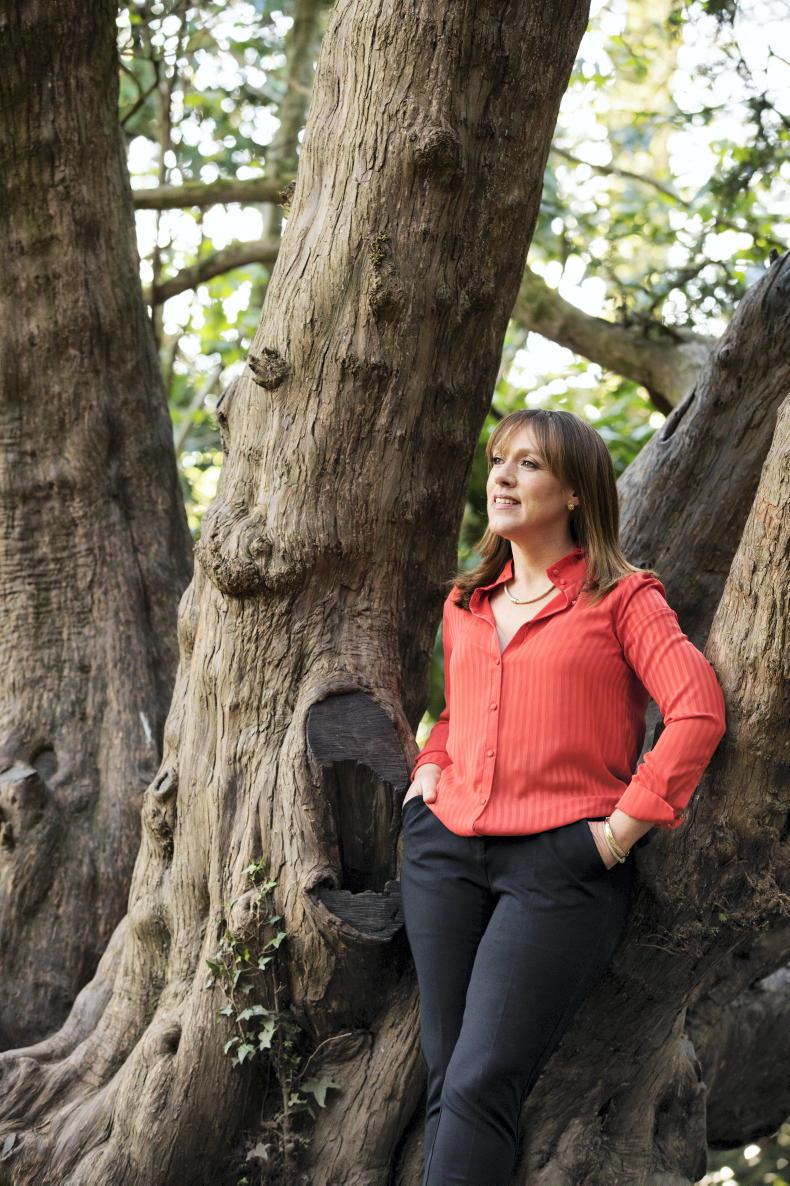
“As a journalist, I’m so used to telling the story on behalf of others, it’s rare I am in the story. But on a cold March day earlier this year, those women were so welcoming and wonderful. They said: ‘This is about you celebrating all you have achieved.’ And I suppose I hadn’t celebrated the 10 years after cancer diagnosis and how far I had come. When we think of cancer we use words like battle and endure but that day it was about fun and celebration.
“To go from the worst news in the world to that wonderful swim on Portmarnock beach with these fun, positive, wonderful women, well it was a privilege. The inclusion and celebration knocked me sideways.
“The power of women really is incredible. I felt it that day in the sea. I felt it that day at the Women & Ag Conference.”
Read more
Evelyn O'Rourke: Miracles do happen
Watch: free the nipple
It was 11.55am on a blustery October day in 2015.
In the crowded conference room of the Knightsbrook Hotel in Meath, I look at my watch and think, “Time to get Evelyn on stage”.
Surveying the room, I spot Evelyn O’Rourke, notes in hand but as I walk towards her, I see tears streaming down her face.
“Evelyn, don’t worry, you’ll do great,” I say, thinking the nerves have kicked in at the thought of standing up in front of 600 women. But instead she turns to me and says: “Ciara, how do I go on stage after that amazing woman?”

Evelyn O'Rourke spoke at the Women & Ag Conference in 2015. \ Bryan Brophy
The amazing woman she is referring to is Diane Banville who was telling the heart-breaking story of losing her husband Kevin in a farm accident. At the time, her sons Ryan and Cillian were only two and five weeks old respectively. Evelyn’s reaction that day sums up how she is as a person; she is kind, caring and empathetic.
As a journalist in RTÉ, now on the Claire Byrne Show, she has been telling people’s stories with dignity and grace for many years. But Evelyn has her own story and in the 12 years of Women & Ag, her talk that day was, like Diane’s, one of the most memorable.
Cancer while pregnant
In 2010, four days after Evelyn found out she was pregnant with her second son Ross, she was diagnosed with breast cancer.

Evelyn was diagnosed with cancer four days after finding out she was pregnant. \ Bryan Brophy
“Four days,” she exhales as if she sometimes cannot believe it herself. “It still feels unreal. My son Oisín was four months old. Nobody wants to be on that chemo ward but you definitely don’t want to be the bald woman with a big pregnant bump on the chemo ward.”
Because that was the path that followed. Incredibly, Evelyn was told that after the 12-week mark, it was safe to do chemotherapy as it does not pass through the placenta and harm the baby. “It was surreal. I was told not to eat prawns but I could do chemotherapy.”
As well as chemo, Evelyn had a lumpectomy to remove the tumour, a second surgery to remove the lymph nodes and another surgery for an infection, all to treat her hormone sensitive HER2 negative breast cancer. Miraculously, in the face of it all, Ross was born a happy, healthy little boy and is now 10 years old.
Women & Agriculture Conference
When Ross was just a baby, Evelyn started writing about her experience as a form of therapy and in 2015, it was developed into a book, Dear Ross. She spoke that year at our Women & Ag Conference.

“I remember that day so clearly,” says Evelyn. “The book had come out and it was one of the first big events I had ever done. Over the years, as a journalist, I had hosted lots of events but this was different, this was me telling my story.
“I remember thinking, ‘Right Evelyn you had a mission and now you are going to be tested’. When I was writing that book, my plan was to talk to women about my cancer and how it presented because it wasn’t a lump, it was a spot on my nipple. In a good way, we are all conscious of lumps but the dimpled skin can be a sign.
“So I wanted to speak out, to say there should be nothing different about your breasts from the usual way they look and if there is please get it checked. But that day, when the time came to speak out, I was nervous.
“I was trembling walking on stage but there was just this amazing atmosphere in the room and I got this sense that the audience was rooting for me, they wanted me to do well. I made a joke and everyone laughed and I instantly relaxed. I’m among friends, I thought.”
Aisle and Ise
The Women & Ag Conference is just one of the ways Evelyn has reached out to women over the years. Sometimes it has been a small but significant call to a woman who has just been diagnosed while earlier this year, it was making a documentary for TG4 called Aisle and Ise, documenting her 10 years being cancer free.

“I have been lucky enough to have had a very positive cancer outcome,” says Evelyn, “and I am very thankful to the health service. They delivered my baby Ross safely against all the odds. He is now 10 and a total dude, he thinks he is fabulous and he is fabulous. It was a thank you from me – I not only recovered, I had a baby.”
Of course, there has been a lot of scandal when it comes to women’s health and the documentary is very honest about that too.
“Interviewing Stephen Teap – whose wife Irene died of cervical cancer after her smear results were reported incorrectly – was very hard, especially seeing Irene’s two sons who are a little younger than my own. That was an important message to get across as well, how the system has failed women and the improvements that are needed.
“I wanted the documentary to be honest but also positive. The truth is that today a cancer diagnosis isn’t always dark and black. Yes, the experience is lousy and dreadful but it can move on to a happier place if the diagnosis is manageable. I wanted to give comfort and hope to women that have gotten a diagnosis or are going through the process.”
Clinical trials
Evelyn has also been a huge advocate of clinical trials and one of the most compelling and uplifting statistics that is revealed in the documentary is that in the past 10 years there has been a 70% reduction in the administration of chemotherapy for women who do not have lymph nodes under their arm with Evelyn’s specific cancer, the hormone sensitive HER2 negative breast cancer.

\ Bryan Brophy
“Isn’t that just amazing?” says Evelyn. “Seventy per cent reduction. My oncologist Dr Janice Walsh explained that part of the tumour is sent to America for testing to determine if chemotherapy is needed. Yes, women still have to undergo surgery and radiotherapy but there is something about chemo that is so public, so difficult. To remove that from the cancer experience changes the cancer experience.
“All this comes down to the power of clinical trials. It is the clinical trials that women took part in 10 years before my diagnosis that affected my positive outcome and it was the trials I took part in that will affect the positive outcome for women today.”
Evelyn says, she didn’t even do anything except agree to give some data. “The word trial can be daunting and often our minds jump to the intense end of a clinical trial but there is a huge scale.
“A trial can be as simple as filling out some forms, allowing your data to be used in research, permitting the lab to re-look at your biopsy. Often you don’t need to do anything except agree to be included in a trial. And when you think about that amazing statistic – that 70% reduction in chemotherapy for my specific cancer – you really see the amazing power of trials.

Evelyn wrote a book, Dear Ross, as a form of therapy. \ Bryan Brophy
“But trials need more support. We need to support international collaboration because that’s when you get the best minds working together. We need to keep supporting the work that is being done in Ireland and one of the important things that needs to be improved is protected time.
“Instead of trials being something you do as a doctor because you’re interested, slightly voluntarily even, it should be part of your working day. We want the HSE to develop the commitment to trials. Yes, they are expensive and complex and results take time but they are so worth it.”
A swim to remember
This important and positive message comes through so clearly in Evelyn’s documentary, but she says it was still challenging for her personally.
“Doing the documentary made me think back on a tough time, I had to revisit it. And although my outcome is very positive and I am so grateful to be 10 years out, it was emotional.”
One of the most poignant moments was when she joins a group of other breast cancer survivors for a celebratory swim.

“As a journalist, I’m so used to telling the story on behalf of others, it’s rare I am in the story. But on a cold March day earlier this year, those women were so welcoming and wonderful. They said: ‘This is about you celebrating all you have achieved.’ And I suppose I hadn’t celebrated the 10 years after cancer diagnosis and how far I had come. When we think of cancer we use words like battle and endure but that day it was about fun and celebration.
“To go from the worst news in the world to that wonderful swim on Portmarnock beach with these fun, positive, wonderful women, well it was a privilege. The inclusion and celebration knocked me sideways.
“The power of women really is incredible. I felt it that day in the sea. I felt it that day at the Women & Ag Conference.”
Read more
Evelyn O'Rourke: Miracles do happen
Watch: free the nipple










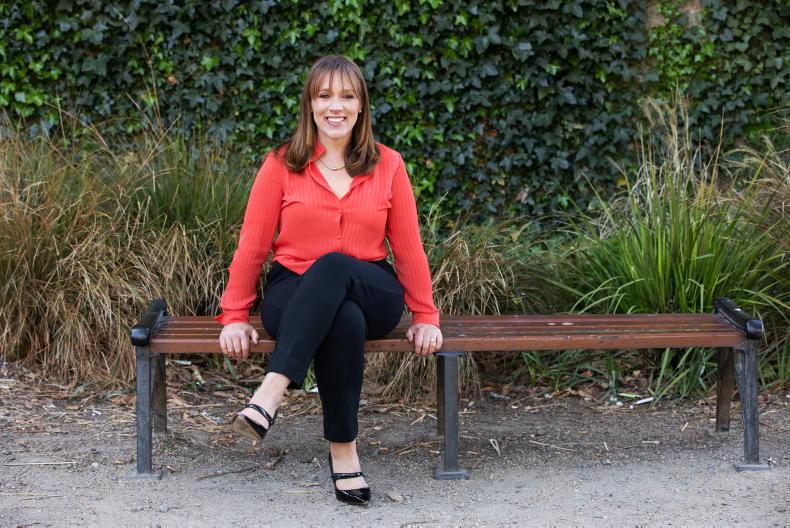

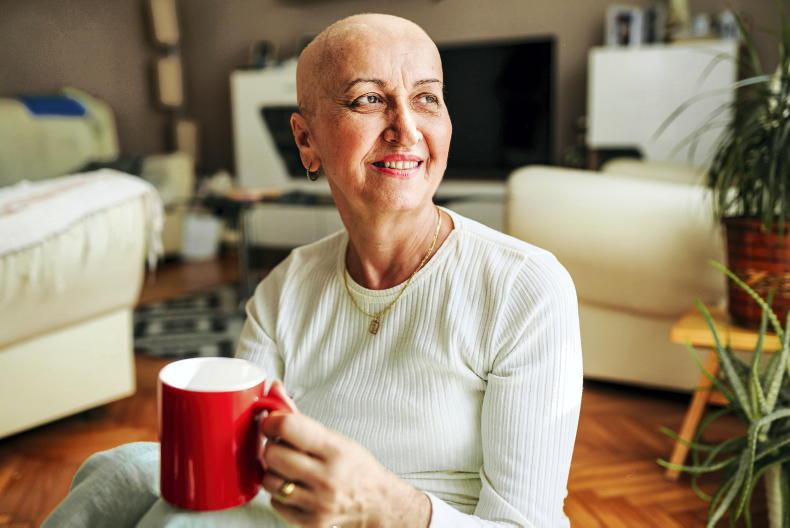

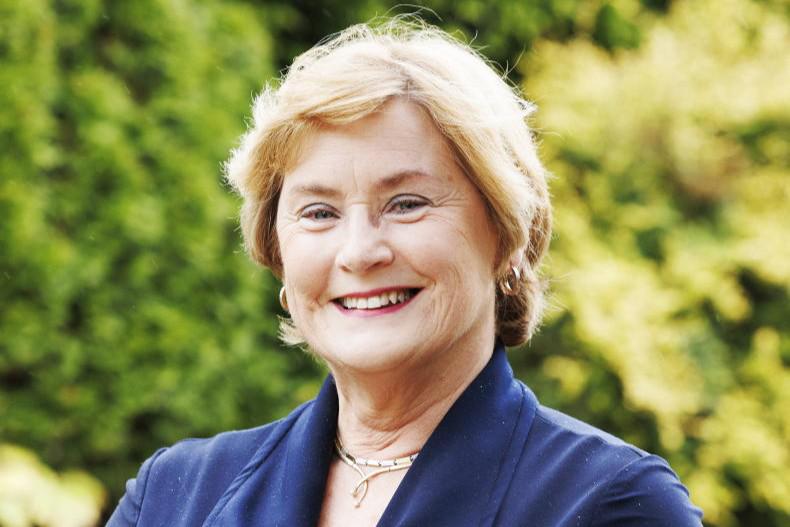
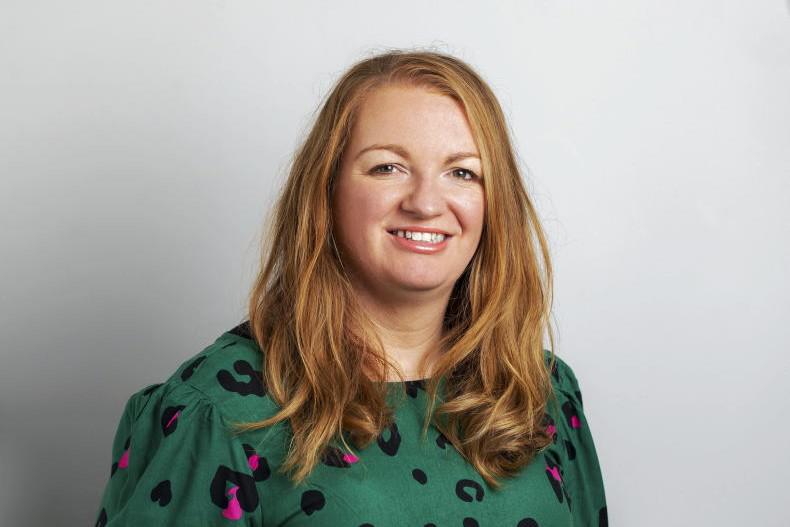
SHARING OPTIONS